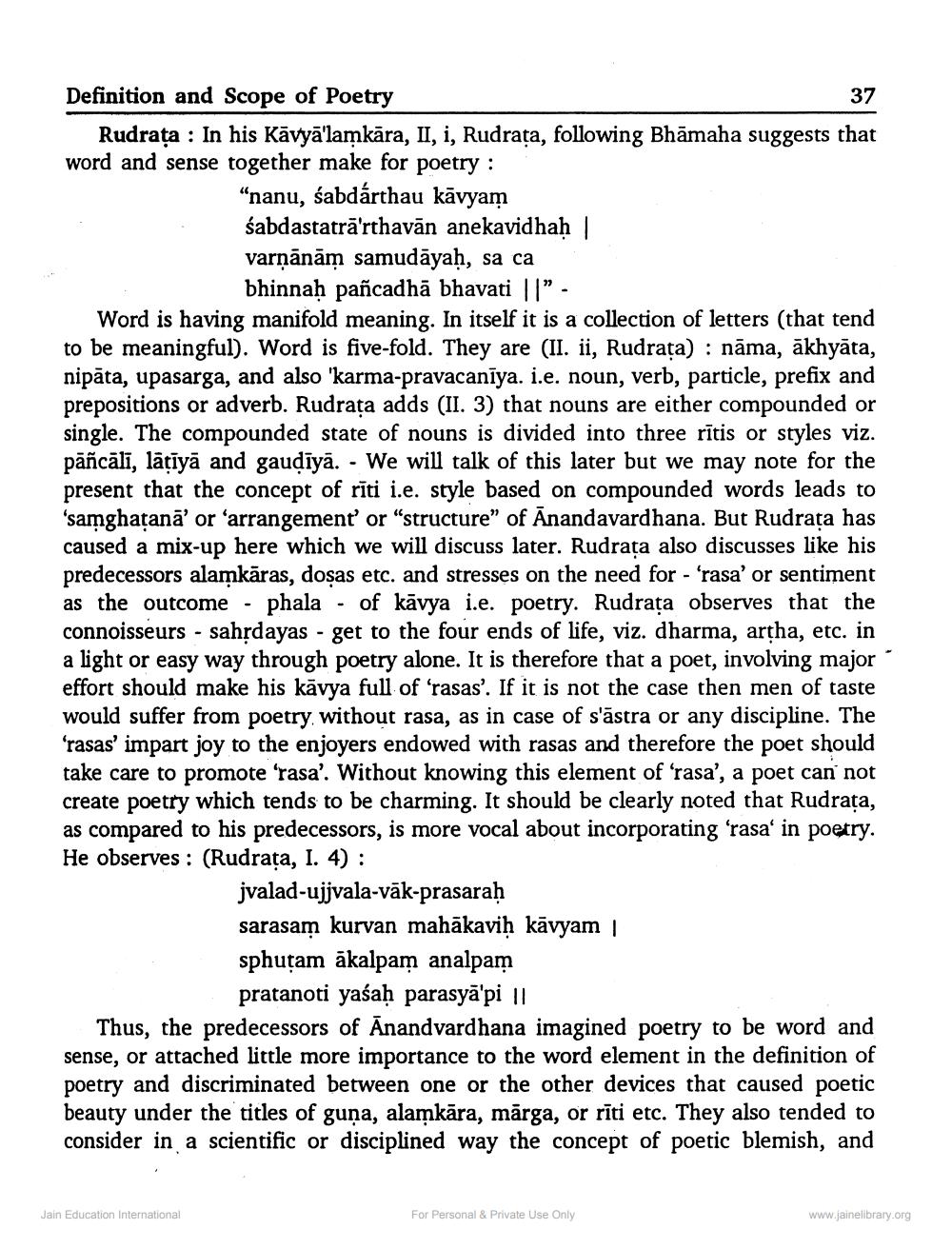________________
Definition and Scope of Poetry
37
Rudrata : In his Kāvā'lamkāra, II, i, Rudrata, following Bhāmaha suggests that word and sense together make for poetry :
“nanu, śabdárthau kāvyam śabdastatrā'rthavān anekavidhaḥ || varņānām samudāyaḥ, sa ca
bhinnaḥ pañcadhā bhavati ||”. Word is having manifold meaning. In itself it is a collection of letters (that tend to be meaningful). Word is five-fold. They are (II. ii, Rudrata) : nāma, ākhyāta, nipāta, upasarga, and also 'karma-pravacanīya. i.e. noun, verb, particle, prefix and prepositions or adverb. Rudrata adds (II. 3) that nouns are either compounded or single. The compounded state of nouns is divided into three rītis or styles viz. pāñcālī, latīyā and gaudīyā. - We will talk of this later but we may note for the present that the concept of rīti i.e. style based on compounded words leads to 'samghatana' or 'arrangement' or "structure of Anandavardhana. But Rudrata has caused a mix-up here which we will discuss later. Rudrața also discusses like his predecessors alamkāras, dosas etc. and stresses on the need for - 'rasa' or sentiment as the outcome · phala - of kāvya i.e. poetry. Rudrata observes that the connoisseurs - sahrdayas - get to the four ends of life, viz. dharma, artha, etc. in a light or easy way through poetry alone. It is therefore that a poet, involving major effort should make his kāvya full of 'rasas'. If it is not the case then men of taste would suffer from poetry, without rasa, as in case of stāstra or any discipline. The 'rasas' impart joy to the enjoyers endowed with rasas and therefore the poet sh take care to promote 'rasa'. Without knowing this element of 'rasa', a poet can not create poetry which tends to be charming. It should be clearly noted that Rudrata, as compared to his predecessors, is more vocal about incorporating 'rasa' in poetry. He observes : (Rudrata, I. 4):
jvalad-ujjvala-vāk-prasarah sarasam kurvan mahākaviḥ kāvyam | sphuram ākalpam analpam
pratanoti yaśaḥ parasyā'pi 11 Thus, the predecessors of Anandvardhana imagined poetry to be word and sense, or attached little more importance to the word element in the definition of poetry and discriminated between one or the other devices that caused poetic beauty under the titles of guna, alamkāra, mārga, or rīti etc. They also tended to consider in a scientific or disciplined way the concept of poetic blemish, and
Jain Education International
For Personal & Private Use Only
www.jainelibrary.org




